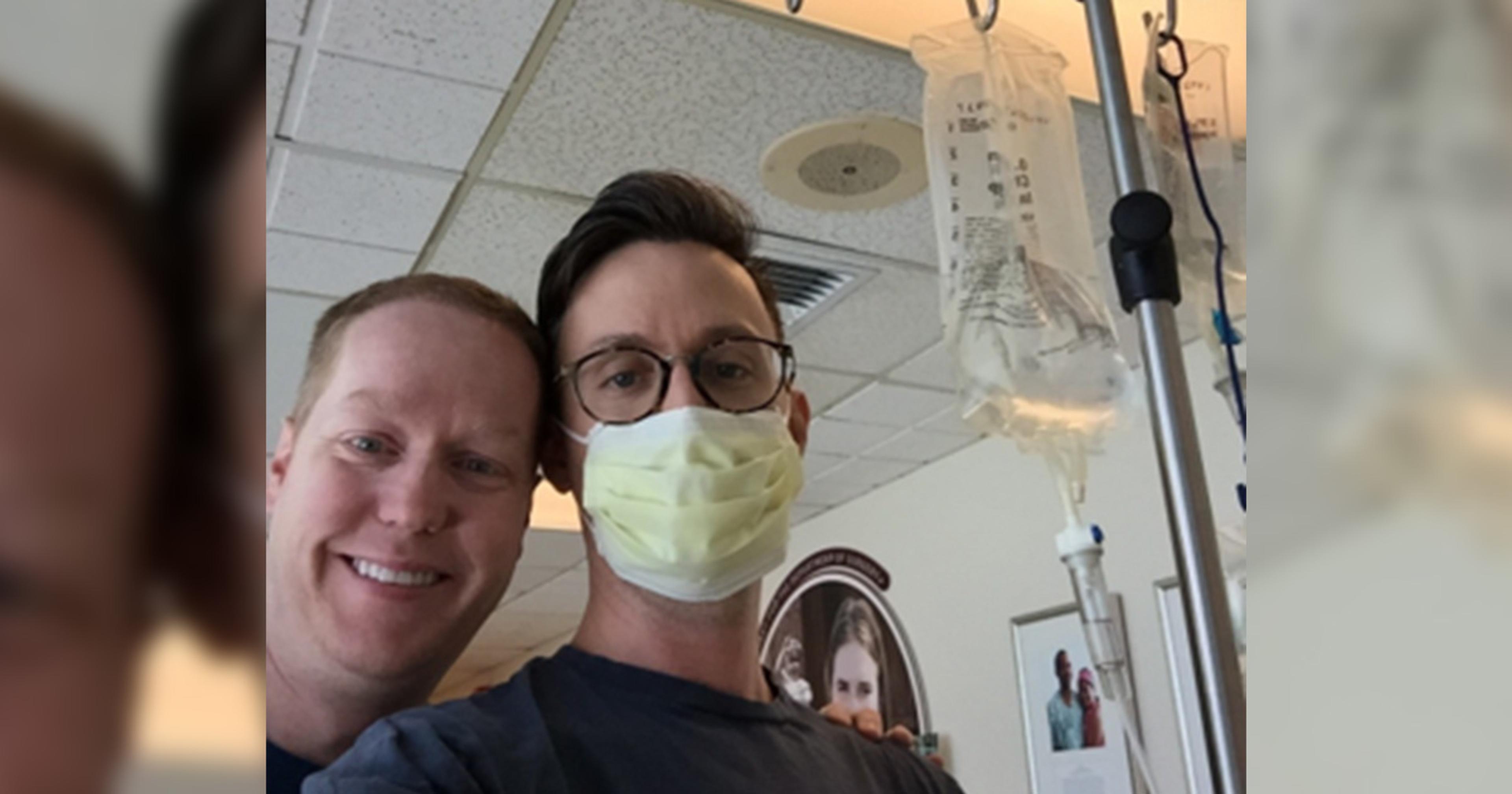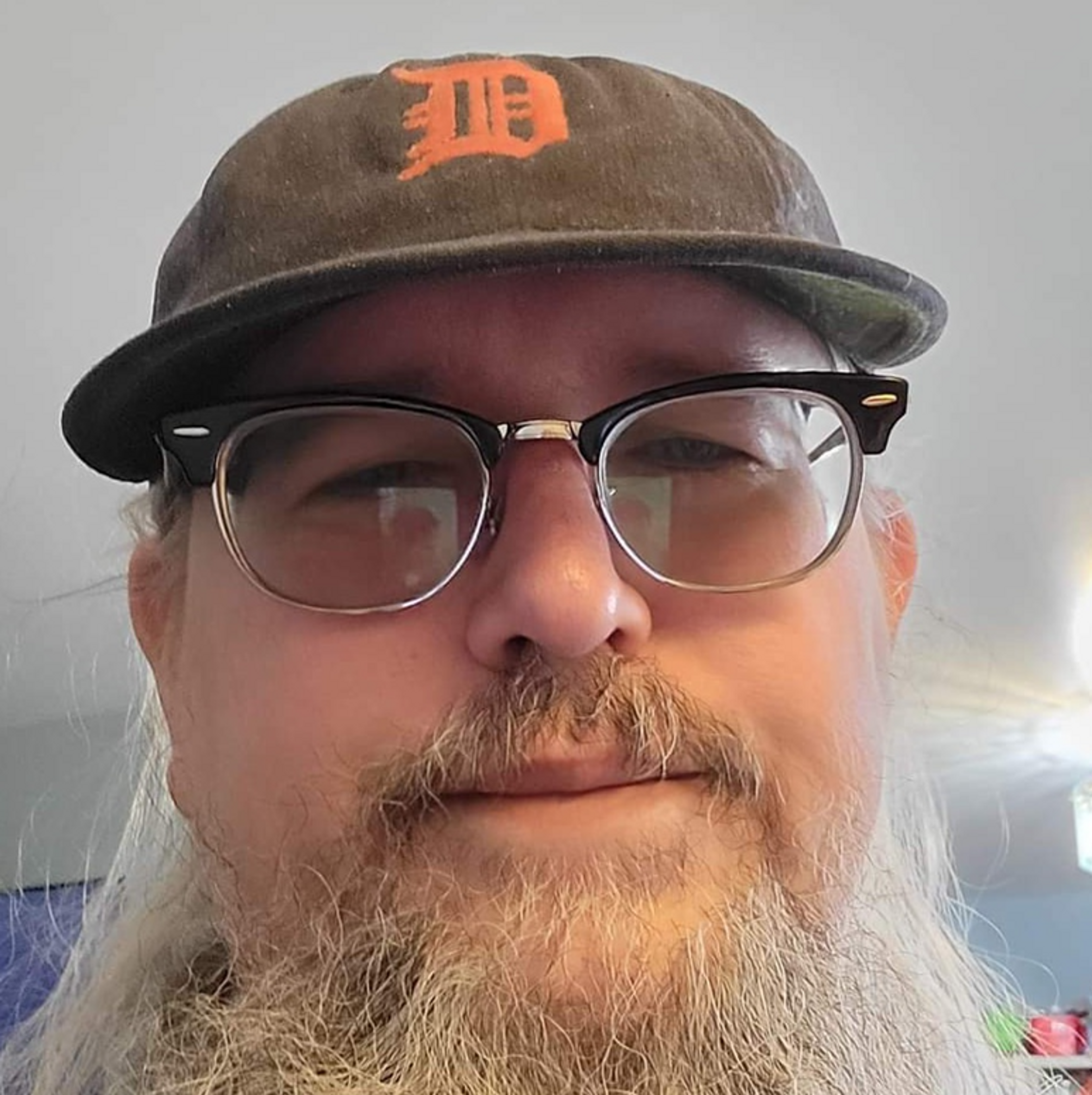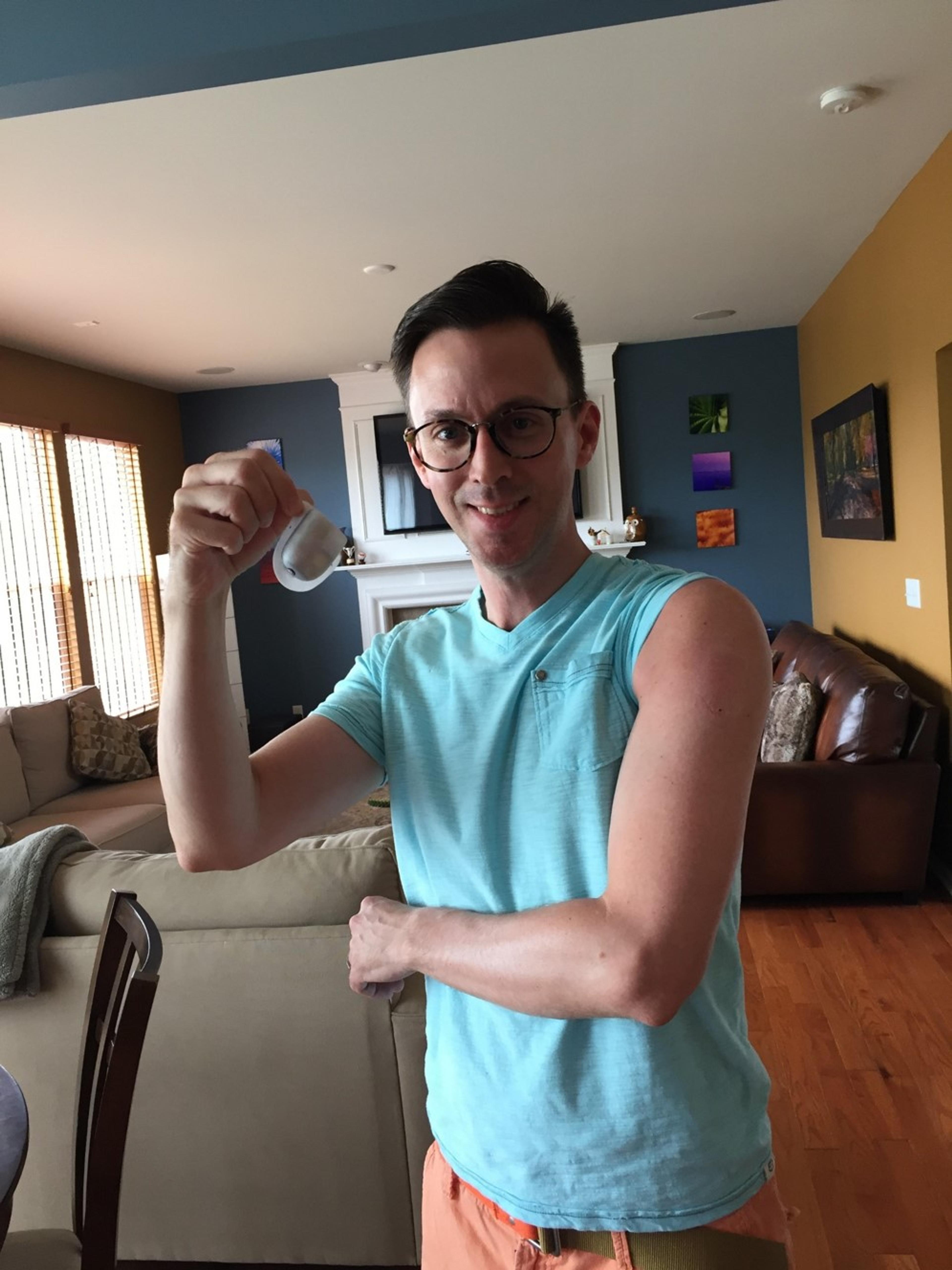‘I Would Not Be Here:’ Organ Donors, Recipients Share Their Emotional Stories
Jake Newby
| 7 min read

No gift is greater than the gift of life. But for organ donors and receivers to grasp that perspective and find that clarity, they have to experience hardship first. That’s the bittersweet nature of organ donation.
Blue Cross Blue Shield of Michigan (BCBSM) employees Heidi Saucier and Nickolas Kadel have been on both sides of that coin in recent years. Saucier’s late husband, Chris, was an organ donor who gifted life to four people after his unexpected death in 2022. And after a debilitating string of years with Type II Diabetes, Kadel forgets he even has the condition some days, thanks to being the recipient of a life-saving pancreas donation.
Kadel and Saucier have become passionate about organ donation through their respective journeys. They shared their stories with BCBSM for National Donate Life Month in April.
“This was never a path I expected to be on”
Toward the end of the 2022 summer, Heidi Saucier’s45-year-old husband, Chris, caught a cold that developed into pneumonia and sepsis. On Sept. 11, Chris went into cardiac arrest and died three days later. Over the course of the next week, a nurse mentioned to Heidi that Chris was a registered donor.
“Once I was told that, it made it a very easy decision to let him do one more thing before things were all said and done,” Heidi said.
Heidi said Gift of Life ran a series of medical tests and began contacting facilities with people on the organ donation registry to try and facilitate the donation process.
“In the end, it was the heart, kidneys and liver that were confirmed to be eligible for harvesting,” Heidi said. “He went into cardiac arrest, but his heart was still fine. His cardiac heart in general, despite some of his poor health choices, he always had decent cardiac health. So, it made sense that his heart was in good shape for somebody else.”

Of the four male recipients who received Chris’ heart, liver and two kidneys, two of the recipients were close to Chris’ age, one was significantly younger and one was older.
“Just knowing you have a young person whose life will hopefully be extended even longer than it could have been without the organ, and then an older person is going to have an extension of life, and then those his age, is just amazing to me,” Heidi said. “The heart is the one that touches me the most, because that is our lifeline.”
Heidi and her 5-year-old son were still very much trying to process Chris’ death when positive emotions of pride and reward gripped the family as Chris’ decision to donate paid immediate dividends. Now, Heidi is a proud organ donation advocate.
“Obviously this is never a path I expected to be on. I wish his journey wasn’t over, but we don’t have control over those timelines,” she said. “This was kind of like the silver lining. As soon as the opportunity was presented to me, there was no question in my mind that this was something I needed to do.”
She added that anyone out there who has pause about becoming an organ donor because of their health shouldn’t let that deter them.
“Never think that your current health status automatically rules you out,” Heidi said. “You never know when the opportunity is going to come up for you to save a life. It’s better to make yourself available for the possibility and have doctors disqualify you later on, than to rule yourself out and somebody loses out on a chance for extended life.”
“I can actually live”
Out of the blue, at age 19, Nickolas Kadel was diagnosed with Type I Diabetes. Doctors determined later that he had an autoimmune issue that caused his body to attack his pancreas, and, essentially destroy it.
His health became so dyer in his mid-to-late 30s that he and his husband were waking up three times a night to test his blood sugar because they didn’t know if he would wake up. Kadel tried every measure imaginable to keep his blood sugar in check, including going on an insulin pump, which is designed to provide continuous insulin instead of injecting it two or three times a day, and using a continuous glucose monitor. These measures proved worthy at first, but provided diminished returns after a while.

“One night I woke up disoriented and tested my blood sugar and it was 22. Which, essentially means, I was close to being dead,” he said. “I got it back up, but I thought, ‘This is ridiculous.’ I’d honestly started to give up hope anyway. I thought, ‘There’s no way to control this. I’m probably just going to die.”
As many doctors as Kadel had working with him, it wasn’t enough. Instead of giving up hope completely, Kadel turned his attention to a University of Chicago clinical trial that uses donated pancreas from a deceased donor and essentially digests the organ down to just the base cells that make up insulin. This is known as an islet transplant.
“They would put a small catheter into the liver and then inject those cells into the liver,” Kadel explained.
Kadel added his name to both an islet cell transplant waiting list, and, to hedge his bet, a pancreas transplant waiting list in 2016. He waited for just a month and a half before receiving his first islet transplant in May of 2016. His quality of life was great at first, but Kadel said the transplant didn’t stick.
“It worked just fine until December until it started not functioning perfectly, and I started taking some artificial insulin,” Kadel said.
His second transplant came in May of 2017, and since the summer of that year, Kadel has had about as close to a clean bill of health as he’s had since his teenage years.
“Aside from taking a couple of pills a day, I take no drugs,” Kadel said. “Instead of injecting myself with questionable results two or three times a day, I just take a couple pills once a day and I’m done. And my blood-glucose is probably better than most of folks.”
Once on the brink of death, Kadel said he is not taking his life for granted.
“Since my transplant, I can actually live,” he said. “I can come to work without worrying. I can be with my family without worrying. I can live a typical day-to-day life without worrying about my diabetes.”
Kadel added that he’s cognizant of the fact that not everyone is as privileged as he is. To have waited less than two years for two transplant is his story, but it’s not everyone’s story. He thinks organ donation – and relatively prompt organ donation – should be on the table for everyone, no matter their ethnicity or socioeconomic background.
“We need more donors. And we especially need more donors to address some of the real health inequities and health disparities that are out there,” Kadel said. “There is a whole group of Americans that don’t have the same advantages that I had simply because of where they live, how they grew up, where they grew up, how much money they have or the color of their skin. And we need to fix that. There are a lot of times I feel like I’m the last person in the world that deserves these opportunities that I’ve been given, and there’s a lot more people out there who truly do need them, as well.”
If you’d like to learn more about the Michigan donor registry, visit the Michigan Department of State’s web page on organ donation at this link. You can also learn more about Michigan’s organ donation partners: Donate Life America, Eversight and Gift of Life Michigan.
Photo credit: Heidi Saucier and Nickolas Kadel
Check out more member stories:





